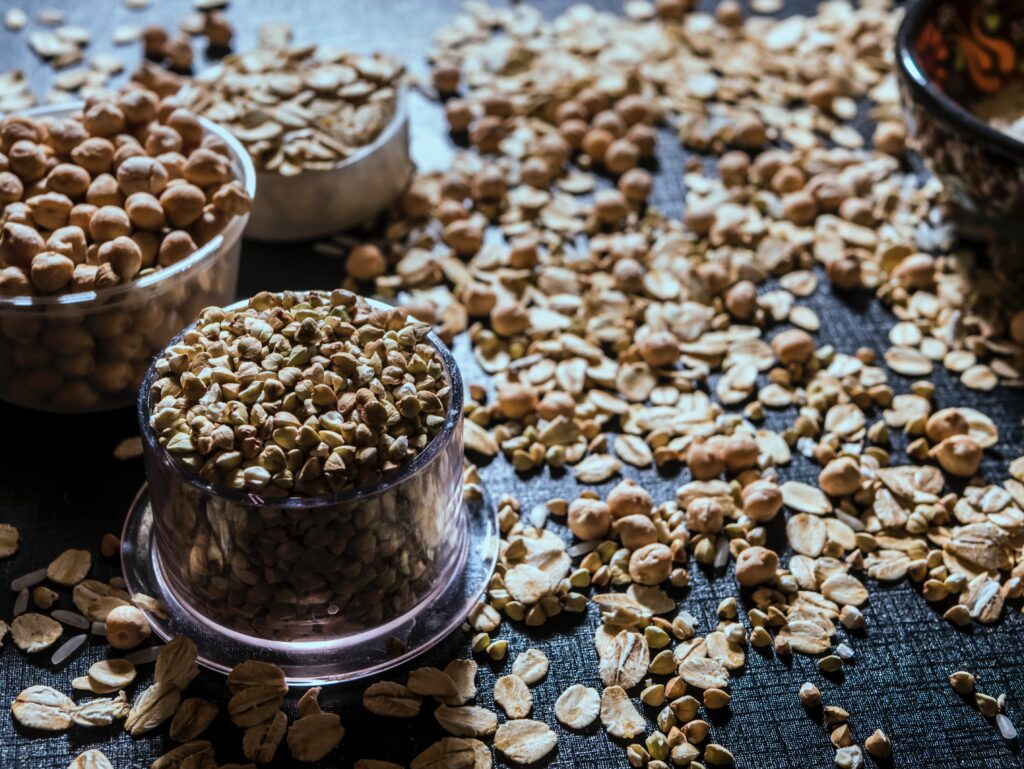Table of Contents
Introduction
In a world where dietary choices encompass a wide spectrum, veganism has risen as a prominent lifestyle. Anchored in ethical, environmental, and health considerations, it resonates with people across the globe. Nevertheless, akin to any dietary preference, veganism presents its distinctive challenges, with one of the most pressing issues being Vegan B12 deficiency and nutrition. Maintaining a well-rounded and nourishing vegan diet becomes paramount for upholding overall health and well-being.
Understanding Veganism

What Constitutes a Vegan Diet?
Before diving into the intricacies of B12 deficiency, let’s grasp the fundamentals of a vegan diet. Veganism represents a conscious choice to exclude all animal-derived products from one’s diet. This encompasses abstaining from meat, dairy, eggs, and any other by-products of animals. Instead, vegans rely solely on plant-based foods to fulfill their nutritional needs.
The Underlying Causes of B12 Deficiency in Vegans
The Significance of B12 for Vegans
Vitamin B12, scientifically known as cobalamin, plays a pivotal role in various bodily functions. These encompass nerve function, DNA synthesis, and the production of red blood cells. Unfortunately, B12 is primarily found in animal-derived foods, placing vegans at risk of deficiency due to their exclusion of such products.
The Key Factors Behind B12 Deficiency
- Scarcity of Dietary Sources: By excluding animal products, vegans inadvertently miss out on the natural sources of vitamin B12 present in meat, fish, eggs, and dairy.
- Absorption Challenges: Even when vegans resort to fortified foods or supplements, the absorption of B12 may be hindered by factors like low stomach acid or gastrointestinal disorders.
The Grave Consequences of B12 Deficiency
Health Implications
The consequences of vitamin B12 deficiency can be severe and may manifest as:
- Anemia: B12 deficiency can lead to megaloblastic anemia, a condition characterized by the production of abnormally large red blood cells, resulting in fatigue and weakness.
- Nerve Damage: Prolonged B12 deficiency can culminate in nerve damage, leading to symptoms such as numbness, tingling sensations, and difficulty walking.
- Cognitive Impairment: Several studies indicate a link between low B12 levels and cognitive impairment, elevating the risk of dementia.
Vegan-Friendly Sources of B12
Vegan B12 Deficiency and Nutrition: Ensuring a Balanced Vegan Diet
Now, let’s shift our focus from the challenges to the solutions. Vegans have access to various vegan-friendly sources of vitamin B12 that can help them maintain optimal levels:

- Fortified Foods: Many plant-based foods are fortified with B12 to cater to the dietary requirements of vegans. These include fortified plant milks, breakfast cereals, meat substitutes, and nutritional yeast.
- Nutritional Yeast: A beloved ingredient among vegans for its cheese-like flavor, nutritional yeast is often used as a topping for dishes like popcorn, pasta, and salads. It serves as a reliable source of B12 and can be found in most health food stores.
- Supplements: For some vegans, especially those with dietary restrictions or limited access to fortified foods, B12 supplements can effectively bridge the gap. These supplements are widely available in various forms, such as tablets, capsules, and sublingual (under the tongue) drops.
- B12-Fortified Plant Milk: Plant-based milk alternatives, such as almond milk, soy milk, and rice milk, are frequently fortified with B12. Ensure that the product you select contains this essential vitamin by checking the labels.

5. Natural nitrates, commonly found in vegetables like spinach and beets, have gained attention in the context of veganism. These compounds can improve cardiovascular health by promoting vasodilation, reducing blood pressure, and enhancing exercise performance. For vegans, who often rely on plant-based diets, incorporating nitrate-rich foods can be a beneficial strategy to support heart health and overall well-being while aligning with their dietary choices.
Ensuring Adequate B12 Intake
To guarantee sufficient B12 intake while adhering to a vegan diet, consider the following tips:
- Label Scrutiny: Carefully examine the labels of plant-based products to identify those fortified with B12.
- Consulting a Healthcare Professional: If concerns arise about B12 intake or if deficiency symptoms emerge, consulting a healthcare professional is advisable. They can provide guidance and conduct B12 testing if necessary.
- Dietary Diversification: Embrace dietary diversity by incorporating an array of B12 sources, reducing the risk of deficiency. These sources include fortified foods, nutritional yeast, and plant-based alternatives rich in B12.

- Routine Health Checkups: Regular health checkups offer a means of monitoring your well-being. Consider getting your B12 levels tested during these routine assessments.
FAQs
Can I solely rely on fortified foods for my B12 intake?
While fortified foods serve as a valuable source of B12, it’s prudent to diversify your dietary sources to meet your daily B12 requirements.
Is B12 deficiency commonplace among vegans?
B12 deficiency is more prevalent among vegans due to the absence of natural animal-derived sources in their diets. However, with proper planning, it is preventable.
How frequently should I take B12 supplements as a vegan?
The frequency of B12 supplement intake may vary, but a common recommendation for vegans is a 500µg B12 supplement taken daily or weekly.
What are the symptoms of B12 deficiency that I should monitor?
Symptoms may include fatigue, weakness, tingling sensations, and cognitive issues. If you experience any of these, seek advice from a healthcare professional.
Are there any natural vegan sources of B12?
While most plant-based sources of B12 are fortified, some mushrooms and algae contain small amounts of B12. However, they should not serve as the primary source.
Is it possible to reverse the effects of B12 deficiency?
When detected early, B12 deficiency is often reversible through appropriate supplementation and dietary adjustments.
Conclusion
Vegans can maintain a vibrant, well-rounded diet by staying mindful of their B12 intake. Although vitamin B12 deficiency poses a concern, it is entirely manageable through informed dietary choices and the inclusion of supplements when necessary. For those embracing a vegan lifestyle, remember to incorporate these B12-rich foods into your daily meals and stay attuned to your nutritional requirements.

Your point of view caught my eye and was very interesting. Thanks. I have a question for you.